In the hustle and bustle of modern life, convenience often trumps quality, even when it comes to our furry friends. However, just as highly processed foods can wreak havoc on our health, they can also pose serious risks to the well-being of our canine companions. Let’s delve into why it’s crucial to steer clear of highly processed foods for dogs and explore the implications of this dietary choice.
Contents Overview
Understanding Highly Processed Foods
Highly processed foods refer to food products that have undergone extensive processing and contain additives, preservatives, and artificial ingredients. These foods are often altered from their original state through various industrial processes, rendering them significantly different from their natural counterparts.
Characteristics of Highly Processed Foods:
- Artificial Additives: Highly processed foods often contain artificial additives such as colors, flavors, and preservatives to enhance taste, appearance, and shelf life. These additives may have little to no nutritional value and can have adverse effects on health.
- Refined Ingredients: The ingredients used in highly processed foods are often refined and stripped of their natural nutrients during processing. For example, refined grains, sugars, and oils are commonly used in processed food products, devoid of the fiber, vitamins, and minerals found in whole foods.
- High Levels of Sugar, Salt, and Fat: Processed foods are typically high in sugar, salt, and unhealthy fats, which are added to improve flavor and palatability. Excessive consumption of these ingredients has been linked to various health issues, including obesity, heart disease, and diabetes.
- Low in Nutritional Value: Despite their palatability, highly processed foods are often low in essential nutrients such as vitamins, minerals, and antioxidants. Instead, they provide empty calories devoid of the nutrients needed for optimal health and well-being.
- Convenience Packaging: Highly processed foods are often packaged for convenience, such as ready-to-eat meals, snacks, and fast food options. While convenient, these products may sacrifice nutritional quality for convenience and shelf stability.
Examples of Highly Processed Foods:
- Packaged Snacks: Chips, cookies, candy bars, and other packaged snacks are prime examples of highly processed foods. They are typically high in sugar, salt, unhealthy fats, and artificial additives.
- Frozen Meals: Frozen pizzas, microwave dinners, and pre-packaged meals are convenient options for busy individuals but often contain high levels of sodium, preservatives, and artificial ingredients.
- Soft Drinks: Sugary beverages like soda, energy drinks, and fruit-flavored drinks are highly processed and contribute to excessive sugar intake, leading to various health issues.
- Fast Food: Burgers, fries, chicken nuggets, and other fast food items are highly processed and loaded with unhealthy fats, sodium, and calories, contributing to the global rise in obesity and chronic diseases.
The Dangers of Highly Processed Foods for Dogs
Our beloved canine companions rely on us to provide them with the best possible care, including a nutritious diet. However, the widespread availability of highly processed foods for dogs has raised concerns about their impact on canine health. Understanding the dangers associated with these foods is essential for ensuring the well-being of our furry friends. Let’s explore in detail the various risks posed by highly processed foods for dogs and why pet owners should exercise caution when choosing their canine’s diet.
- Lack of Essential Nutrients:Highly processed dog foods often lack the essential nutrients that dogs need to thrive. While they may be packed with fillers and additives, they may fall short in providing the necessary vitamins, minerals, and proteins for optimal health. Dogs require a balanced diet rich in protein, healthy fats, vitamins, and minerals to support their growth, development, and overall well-being. A diet deficient in essential nutrients can lead to a range of health issues, including nutritional deficiencies, weakened immune systems, and poor coat and skin health.
- Risk of Obesity:Just like humans, dogs can suffer from obesity-related health issues when fed a diet high in processed foods. These foods are often calorie-dense and lacking in nutritional value, leading to overeating and weight gain in dogs. Obesity in dogs can increase the risk of various health problems, including diabetes, arthritis, heart disease, and reduced lifespan. Maintaining a healthy weight is crucial for dogs to lead active, happy lives, and feeding them highly processed foods can significantly contribute to obesity.
- Allergic Reactions:The artificial colors, flavors, and preservatives found in processed dog foods can trigger allergic reactions in some dogs. Common symptoms include itching, digestive issues, and skin irritations, which can significantly impact a dog’s quality of life. Dogs with food allergies or sensitivities may experience adverse reactions when exposed to the artificial additives and ingredients commonly found in highly processed foods. Identifying and eliminating potential allergens from a dog’s diet is essential for managing allergic reactions and promoting their overall health and well-being.
- Dental Problems:Many highly processed dog foods are soft and sticky, adhering to the teeth and promoting the buildup of plaque and tartar. Over time, this can lead to dental problems such as gum disease, tooth decay, and bad breath. Poor dental health not only affects a dog’s ability to eat comfortably but can also lead to systemic health issues, including heart disease and kidney problems. Providing dogs with dental chews, regular teeth cleanings, and feeding them a diet that promotes dental health can help prevent dental problems associated with highly processed foods.
- Digestive Issues:The low-quality ingredients and high levels of carbohydrates in processed dog foods can wreak havoc on a dog’s digestive system. Dogs may experience symptoms such as diarrhea, constipation, and flatulence, indicating that their bodies are struggling to process these unnatural substances. Digestive issues can be uncomfortable for dogs and may indicate underlying health problems or dietary intolerances. Switching to a diet that is easily digestible and free from artificial additives can help alleviate digestive issues and promote gastrointestinal health in dogs.
- Increased Risk of Chronic Diseases:A diet rich in highly processed foods has been linked to an increased risk of chronic diseases in dogs, including diabetes, heart disease, and certain types of cancer. These conditions can significantly shorten a dog’s lifespan and reduce their overall quality of life. Feeding dogs a diet that is high in nutrients and free from artificial additives can help reduce the risk of chronic diseases and support their long-term health and well-being.
Alternatives to Highly Processed Foods
As pet owners become increasingly aware of the risks associated with highly processed foods for dogs, the demand for healthier alternatives is on the rise. Fortunately, there are several alternatives to highly processed foods that can provide dogs with the nutrition they need to thrive. Let’s explore these alternatives in detail and understand how they can benefit our furry friends.
- Raw Food Diet:A raw food diet consists of uncooked, natural ingredients such as raw meat, bones, fruits, and vegetables. Advocates of this diet believe that it closely mimics the diet of wild canines and provides dogs with essential nutrients in their most natural form. A raw food diet is rich in protein, healthy fats, vitamins, and minerals, which are essential for supporting a dog’s overall health and well-being. However, it’s important to note that a raw food diet may not be suitable for all dogs, and consultation with a veterinarian is recommended before making the switch.
- High-Quality Commercial Foods:Opting for high-quality commercial dog foods made with natural ingredients and minimal processing is another alternative to highly processed foods. Look for products that list meat as the primary ingredient and avoid those containing artificial additives, fillers, and by-products. Many reputable brands offer a wide range of options, including grain-free, limited ingredient, and novel protein formulas, to accommodate different dietary preferences and sensitivities.
- Homemade Meals:Preparing homemade meals for your dog using fresh, wholesome ingredients can give you complete control over your diet. Homemade meals can be tailored to meet your dog’s specific nutritional needs and preferences, ensuring they receive a well-balanced and nutritious diet. However, it’s essential to research balanced recipes and consult with a veterinary nutritionist to ensure your dog’s nutritional requirements are met. Homemade meals may require additional time and effort compared to commercial options but can be a rewarding way to prioritize your dog’s health and well-being.
- Freeze-Dried or Dehydrated Foods:Freeze-dried or dehydrated dog foods offer a convenient and nutritious alternative to highly processed foods. These foods are minimally processed to preserve the natural nutrients and flavors of the ingredients. Simply rehydrate the food with water before serving to provide your dog with a wholesome and delicious meal. Freeze-dried and dehydrated foods are available in a variety of flavors and formulations, making them suitable for dogs with specific dietary needs or preferences.
- Limited Ingredient Diets:For dogs with food sensitivities or allergies, limited ingredient diets can be a beneficial alternative to highly processed foods. These diets typically contain a limited number of high-quality ingredients, making it easier to identify and eliminate potential allergens. Limited-ingredient diets are available in both commercial and homemade options and can help alleviate digestive issues, skin problems, and other allergic reactions in sensitive dogs.
Bottom Line
While the convenience of highly processed dog foods may be tempting, the long-term health consequences far outweigh any short-term benefits. By opting for natural, minimally processed alternatives, such as raw diets, high-quality commercial foods, or homemade meals, you can help ensure your furry friend enjoys a longer, healthier life free from the risks associated with processed foods. Remember, a healthy diet is the foundation of a happy and vibrant canine companion.

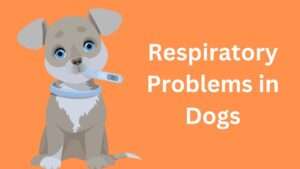
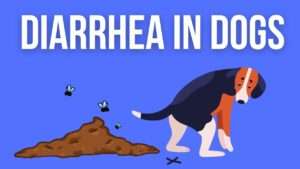



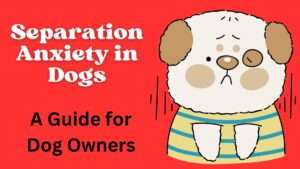



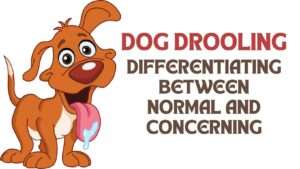

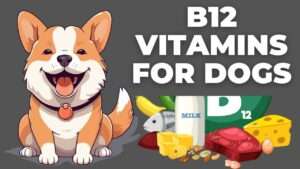


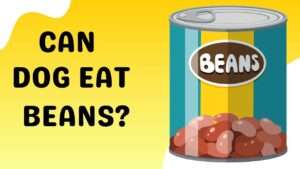










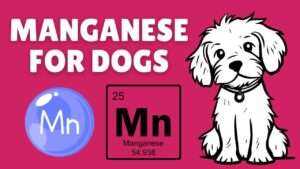

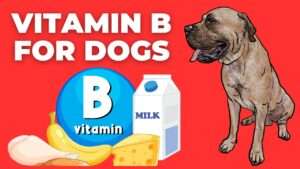







+ There are no comments
Add yours